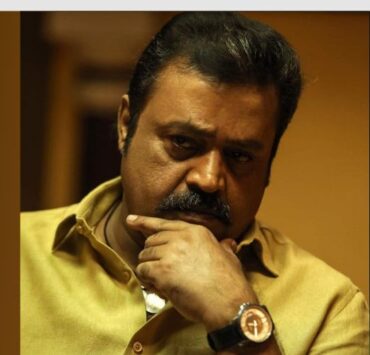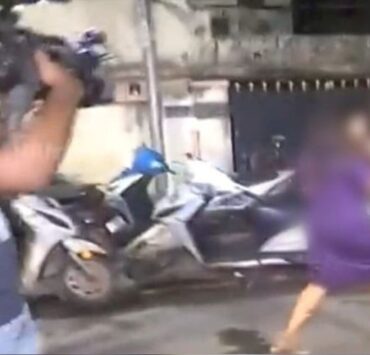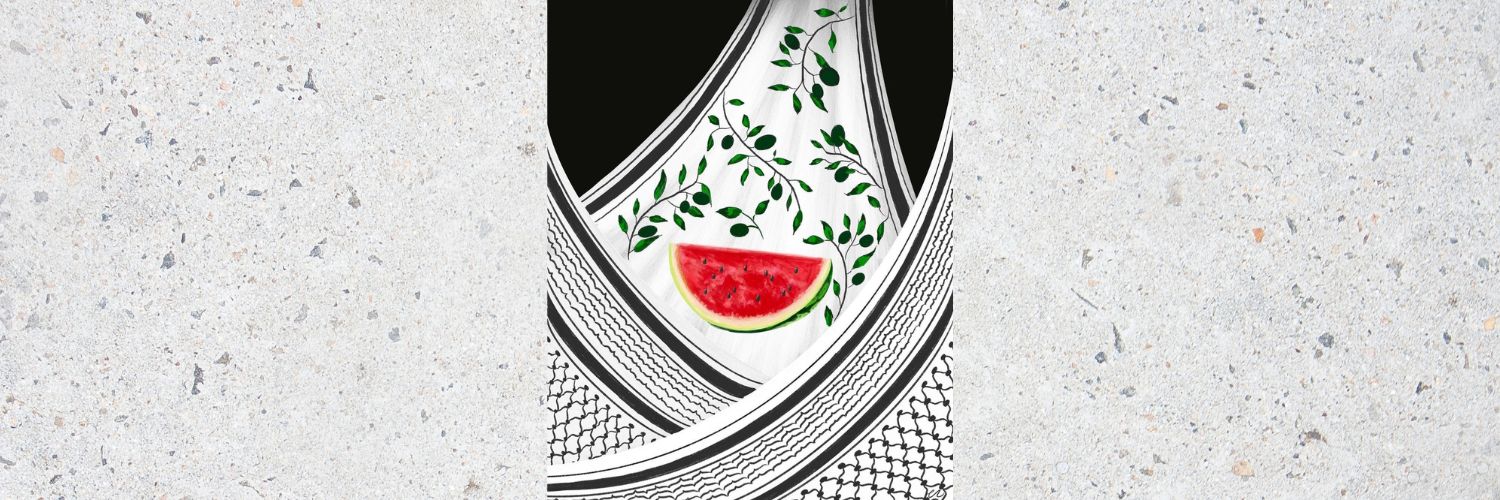
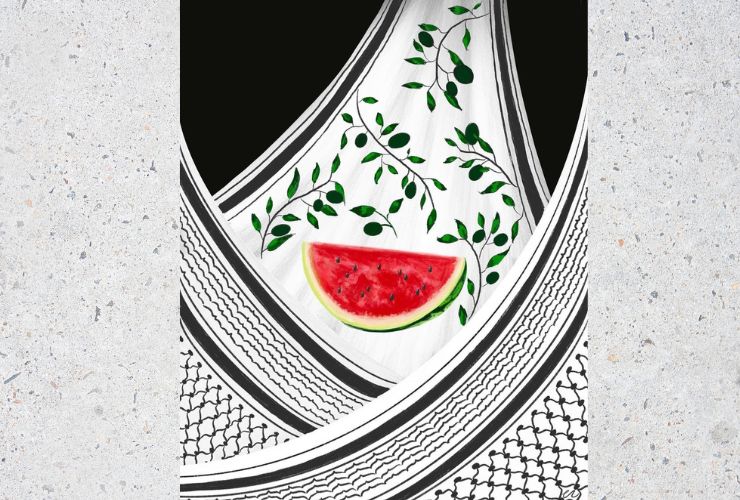
The Network of Women in Media India (NWMI) stands in solidarity with the devastated people of Palestine and with all journalists reporting from the ground on the ongoing genocide by the Israeli state following the attack on Israel by Hamas on 7 October. We also condemn the environment of repression in India, where journalists and members of the public are being targeted for denouncing the massacre of Palestinians.
The four-day “pause in fighting” announced on 22 November to facilitate an exchange of hostages between both sides is welcome but not enough. We join the worldwide call by humanitarian groups, individuals and nations for an immediate and complete ceasefire, and unconditional restoration of medical aid, power, food, water and other supplies, as well as of all necessary relief and rehabilitation work in the Gaza Strip.
As Israel continues to bar entry into Gaza for international media, we draw particular attention to the crucial role that has been played by local journalists over the past seven weeks in building global awareness about the atrocities being committed against Gazans. For several of them this has included the heartbreaking task of reporting on the deaths of their own loved ones.
Shooting the Messengers
According to a 22 November report by the UN Office for the Coordination of Humanitarian Affairs (UNOCHA): (i) the death toll of Palestinians in Gaza since 7 October stood at over 14,500 as per the Ministry of Health (MoH) in Gaza, with this caveat: “following the collapse of services and communications at hospitals in the north, the MoH in Gaza did not update casualty figures” (ii) the total death toll in Israel stood at over 1,200 (including Israeli citizens and foreigners), as per Israeli authorities cited in the media.
“A graveyard for thousands of children” is how UNICEF described the indiscriminate targeting of children in Gaza at a press briefing on 31 October. On 21 November a UNICEF spokesperson said: “More than 5,350 Palestinian children have reportedly already been killed. The death toll among children is sickening. Grief is being embedded into Gaza.”
Journalism plays an essential function in any such humanitarian tragedy. In the present crisis, this pivotal role has extracted a heavy price: till date, at least 53 journalists and media workers, a majority Palestinian, have been among those killed since the latest round of this decades-long conflict erupted on 7 October.
Preliminary investigations by the Committee to Protect Journalists (CPJ) have revealed that, as of 22 November, 46 of these 53 were Palestinians, 4 were Israeli, and 3 were Lebanese. Additionally, 11 journalists were reported injured, 3 reported missing, and 18 reported arrested. Journalists and media workers across the region have also been subjected to multiple assaults, threats, cyberattacks and instances of censorship, in addition to losing family members killed by acts of war.
Reporters Without Borders (RSF) filed a complaint with the office of the prosecutor of the International Criminal Court on 31 October, calling attention to war crimes committed against Palestinian journalists in Gaza, as well as an Israeli journalist, who were killed and/or wounded in the course of work.
The Israel Defense Forces (IDF) told Reuters and Agence France Press news agencies that it could not guarantee the safety of their journalists operating in the Gaza Strip, according to a Reuters report on 27 October. This is a violation of the Geneva Convention and other UN Conventions.
Under Article 79 of Additional Protocol I of the Geneva Conventions, which codifies a customary rule, journalists in war zones must be treated as civilians and protected as such, provided they play no part in the hostilities.
Resolution 2222 approved by the UN Security Council on May 27, 2015, which extends and strengthens Resolution 1738 passed in 2006, reminds all parties in an armed conflict of their obligations to respect those who work in the media and protect them against all forms of violence.
Media as a Vehicle of Misinformation
While the safety of mediapersons in Gaza is under constant threat, sections of the media elsewhere have contributed to the precariousness of conditions in the region.
Earlier this month, the Palestinian Journalists’ Syndicate released a statement reminding colleagues, “particularly those working in the Western media, about the need to adhere to basic journalistic standards”. The statement urged mediapersons to not simply parrot Israeli government propaganda but to question and verify blatant misinformation, and stop the use of “dehumanising and violent language about the Palestinian people”. The original statement has since been taken down but a version of it is available here.
At least two petitions from hundreds of journalists in the United States and media scholars in the United Kingdom have decried media coverage that minimalises the plight of Palestinians and casts doubts on narratives emerging from the besieged area even while accepting and reporting Israeli statements without question as incontrovertible facts.
India: A Climate of Repression
In India, right-wing media coverage has expectedly been along nationalist lines, with journalists taking their cues from the Government of India’s initial expression of solidarity with Israel after the Hamas strikes of 7 October.
Israel’s war on Palestine has also become fodder for Indian right-wing WhatsApp and Facebook groups to stoke Islamophobia within the country.
NWMI notes with concern that our fellow journalists and fellow citizens who have shown any degree of support for Palestinians have attracted virulent reactions.
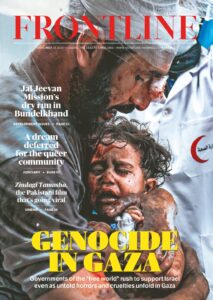 When the fortnightly, Frontline, for instance, unequivocally opposed the genocide in Gaza, the Israeli ambassador to India, Naor Gilon, launched an unprecedented attack on the magazine on social media, accusing it of “importing fake news”. Gilon called Frontline’s interview with a Hamas leader “shameful” even though the magazine had also published interviews with Israeli voices in the same edition. The responses to Gilon’s post on X (formerly Twitter) resulted in the magazine and its editor Vaishna Roy, an NWMI member, being heavily trolled.
When the fortnightly, Frontline, for instance, unequivocally opposed the genocide in Gaza, the Israeli ambassador to India, Naor Gilon, launched an unprecedented attack on the magazine on social media, accusing it of “importing fake news”. Gilon called Frontline’s interview with a Hamas leader “shameful” even though the magazine had also published interviews with Israeli voices in the same edition. The responses to Gilon’s post on X (formerly Twitter) resulted in the magazine and its editor Vaishna Roy, an NWMI member, being heavily trolled.
Gilon’s post was followed up by an article on a right-wing news portal describing Roy as a “jihadi collaborator”. This article further fuelled the trolling of the magazine and its editor.
An article in Arab News quoted Umakant Lakhera, former president of the Press Club of India, criticising the Israeli ambassador’s attempts to dictate terms to the Indian media.
What is also shocking is the manner in which condemnations of violence and calls for peace from ordinary citizens are being criminalised. Several people across India have faced police action for expressing solidarity with Palestinians, whether through social media posts or peaceful public gatherings. Demonstrations and solidarity events in Bengaluru, Ahmedabad and other cities in support of Palestinians and their rights have been curtailed, with some protesters detained and cases registered against many.
Meanwhile, artists and academics are facing various forms of censorship in this context. The musician T.M. Krishna was trolled online for supporting Palestine, while a police complaint was filed against the theatre artist Sudhanva Deshpande who was accused of glorifying Hamas during a lecture he was invited to deliver at IIT-Bombay. The political scientist Achin Vanaik’s talk on Israel and Palestine at O.P. Jindal University in Sonipat, Haryana, was lambasted by the Israeli ambassador, who wrote to the university conveying his “concern and extreme disappointment”. The institution asked Vanaik to express regret, but he has told The Hindu that he refused. IIT-Bombay had earlier cancelled a talk on the same theme by the same speaker.
Such suppression of free speech and pro-Palestinian, anti-genocide voices is not confined to India. The Indian poet and curator Ranjit Hoskote resigned from the finding committee of Documenta 16, an event in Germany, after he was accused of anti-Semitism by a German politician when a newspaper in that country published a letter he had signed in 2019 decrying the oppression of the Palestinian people.
NWMI deplores the climate of fear being created in India (and abroad) to stifle support for Palestinians, the deployment of troll armies to intimidate journalists, and the weaponisation of police permissions and cases to punish protestors and prevent peaceful protests, which are vital aspects of a functioning democracy.
During this unprecedented global catastrophe, NWMI calls upon journalists everywhere, especially in India, to take a clear stand against genocide and against the politics of colonisation, occupation and settler aggression.
The Network of Women in Media, India
23 November 2023



